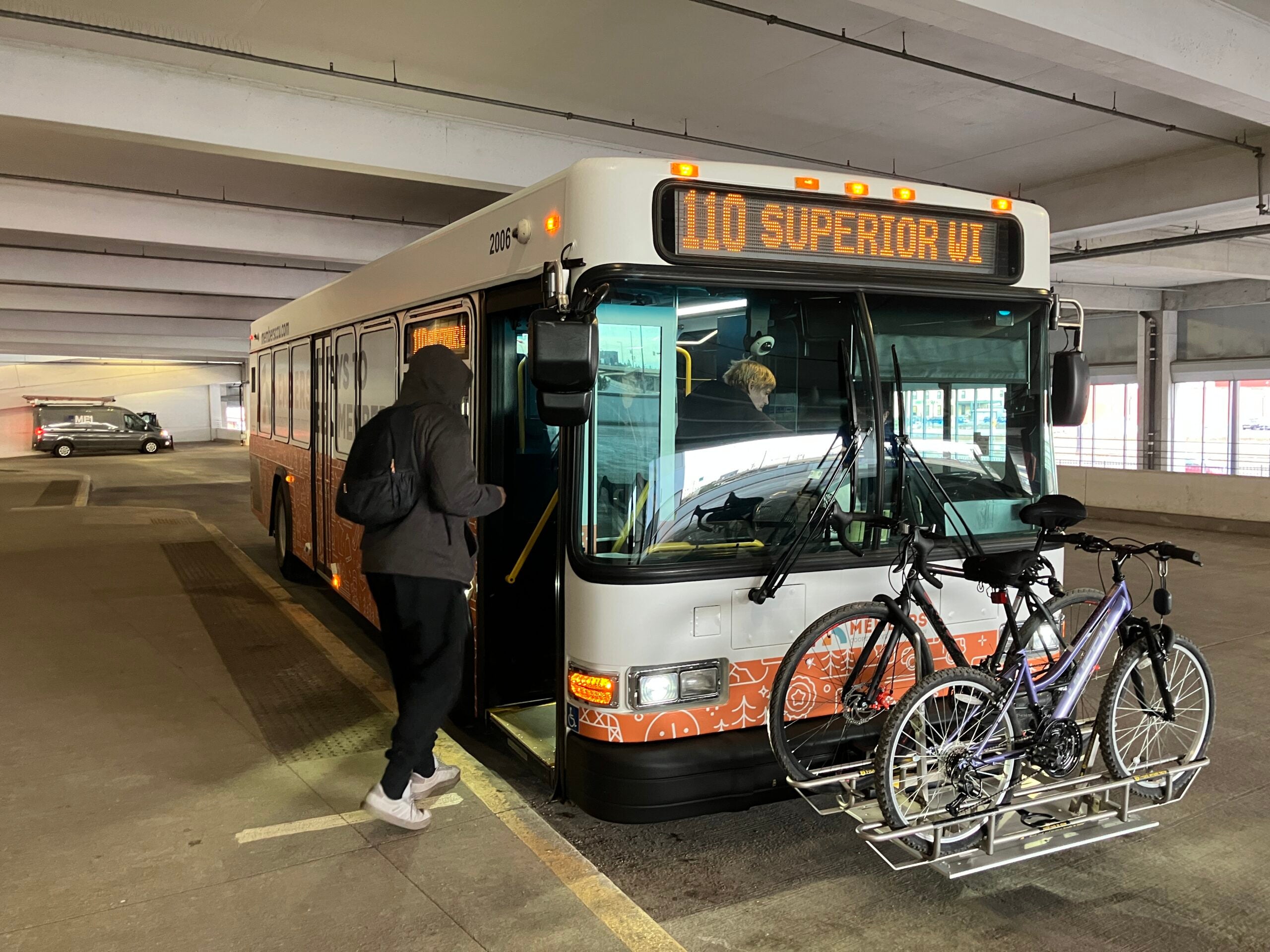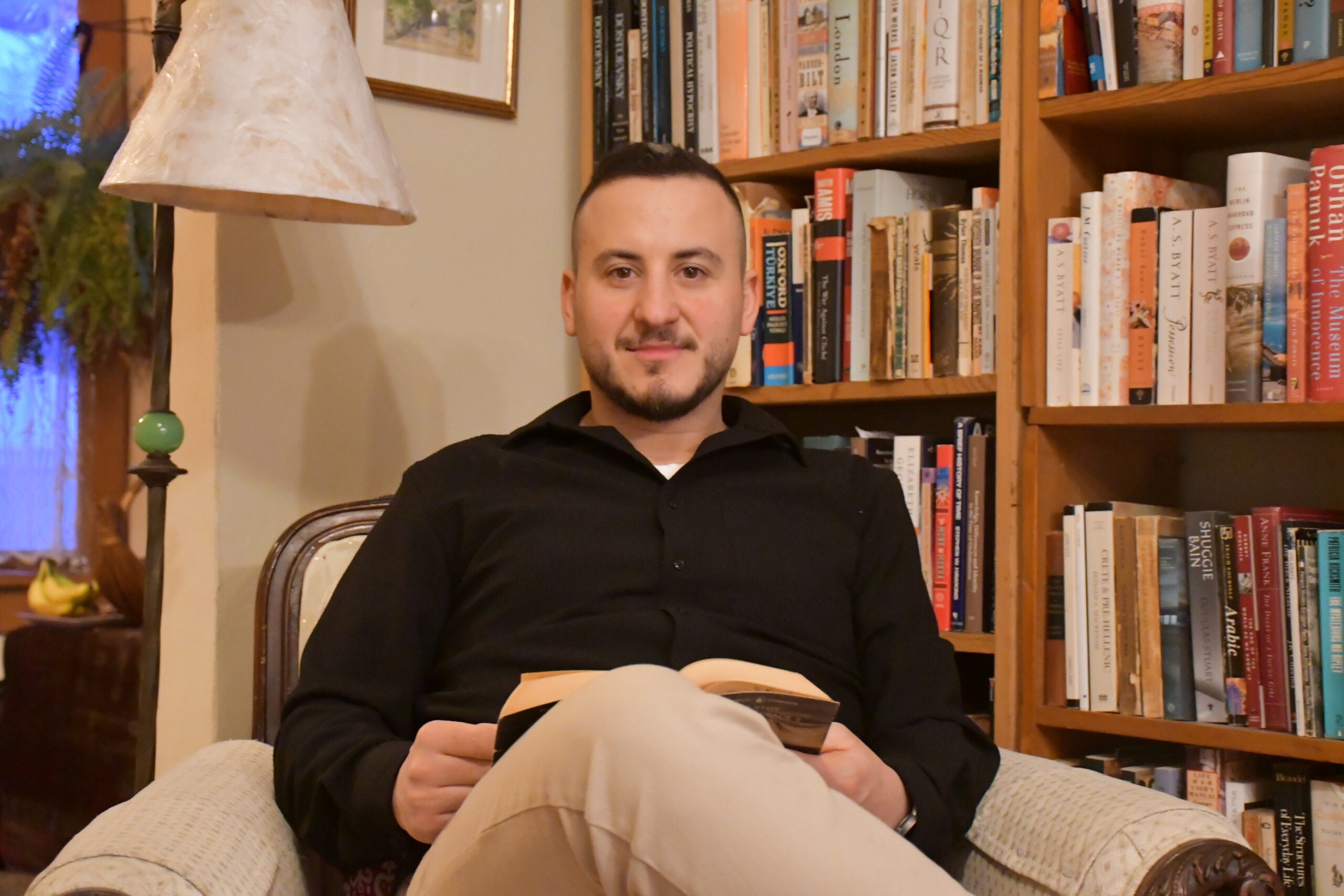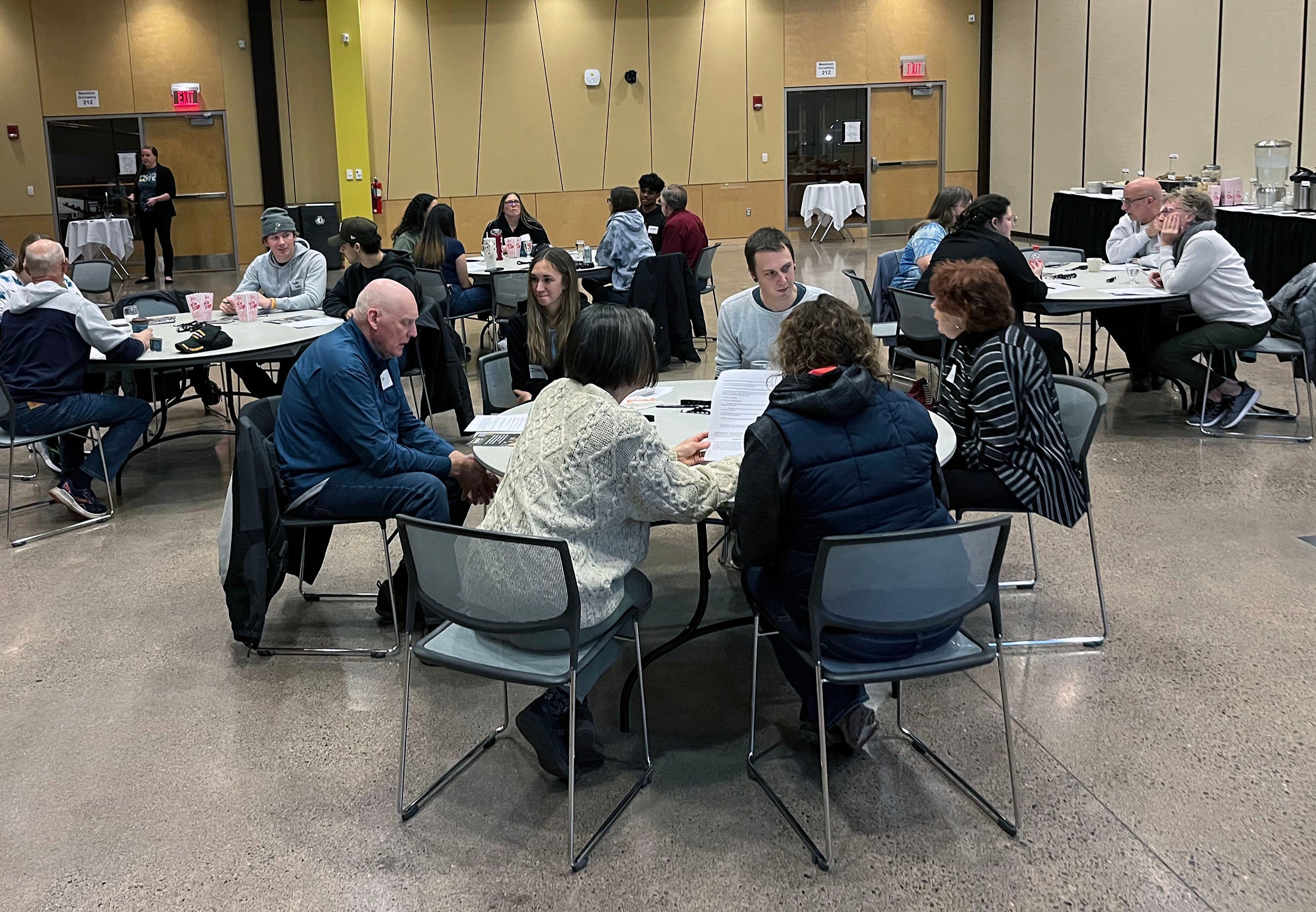An international student from Syria has been pursuing his master’s degree in the Twin Ports. Before that, he was living on the front lines of the Syrian civil war in Aleppo. He spoke about his journey from the war-torn country to the U.S. at Peace United Church of Christ in Duluth on Sunday. The Syrian student may have to return to his home country because he is graduating in May.
I., who declined to use his name out of fear for his family still living in Aleppo, told a room full of worshippers about the dangers he faced in order to obtain a visa to study in the U.S.
“Before the war (a bus ride) used to take six hours from Aleppo to Lebanon. It took me 24 hours,” he said. “Only one thing happened on my way. We were in Homs. A bomb dropped in front of us, and then two bombs behind us – behind the bus.”
Stay informed on the latest news
Sign up for WPR’s email newsletter.
I. said it wasn’t the first time he came close to the devastation of war. He recalled an experience on his last day in Syria that he said was nothing short of a miracle.
“I was going to get my international driving license, and I usually take a certain street to get there. But then I decided, no, I’m going to take this street,” he said. “So when I reach the lights, a bomb dropped on the other street….So if I was there waiting…to cross the street, (I’d) be gone.”
I. doesn’t want to go back to Syria, but he may be forced to return after he graduates this year. If he goes home, it may be a while before he can come back to the U.S.
President Donald Trump signed an executive order this year temporarily barring refugees and citizens from seven Muslim majority nations, including Syria. A federal judge blocked the order from taking effect through a temporary stay, but President Trump has said the administration won’t back down. He has vowed to issue a new executive order, which has yet to be released.
I. said he doesn’t feel he has the right to share his opinion on the temporary travel ban because he’s not an American citizen. But, he said he hopes he can find work so he can stay in the country.
“First time when I came here, I was telling Cameron that I don’t care where I’m going to go to work. I can go anywhere and work. I don’t have family,” he said. “But now, I’m like I want to stay up here in Duluth. I’ve made lots of friends and I don’t want to start over. It’s really hard.”
I. stayed with Cameron Hubley of Duluth for nine days when he first moved to the Twin Ports. Hubley said she invited him to share his experiences with the parishioners.
“My hopes were that he would meet even more people and broaden his support system,” she said. “And, hopefully, make some connections for his future regarding a job and his life here in the United States.”
Duluth’s Doug Bowen-Bailey said the international student’s story about his experiences in Aleppo put a face to what’s happening to Syrians.
“There is so much talk in the news and the media about refugees from Syria or people coming from Syria,” he said. “And to hear more of that personal experience, and to know both his journey over here as a student, but also the experience of his family both in Aleppo and around the world as well – it was very powerful.”
Duluth’s Kevin Skwira-Brown said he believes President Trump’s executive orders are based more on fear and cultural bias than American security.
“That unfortunately resonates with a lot of Americans that voted for him,” he said. “I think it’s bad policy. It doesn’t move us forward as a country. It doesn’t move us forward as a world community. I don’t think it’s grounded in reality.”
Yet, the White House and supporters of the temporary travel ban argue it’s necessary to protect the U.S. from potential terrorist threats from those nations. President Trump has said the temporary ban gives security officials time to properly vet those who are seeking to enter the country from those nations.
As for I., he’s looking for work while he finishes his studies in what may be his last few months in the Twin Ports.
Wisconsin Public Radio, © Copyright 2025, Board of Regents of the University of Wisconsin System and Wisconsin Educational Communications Board.



